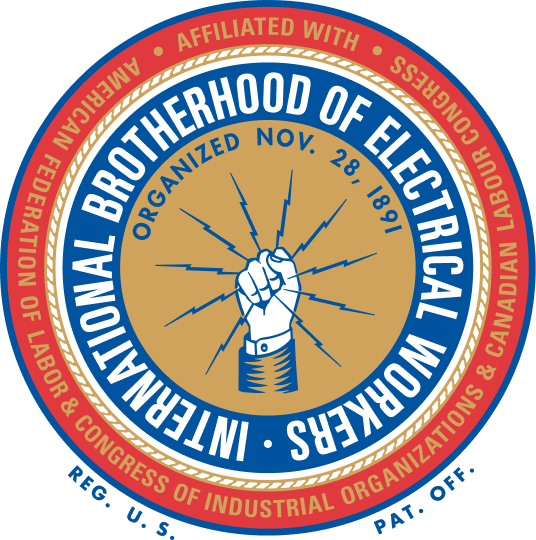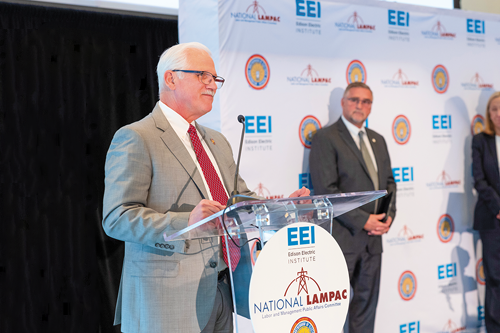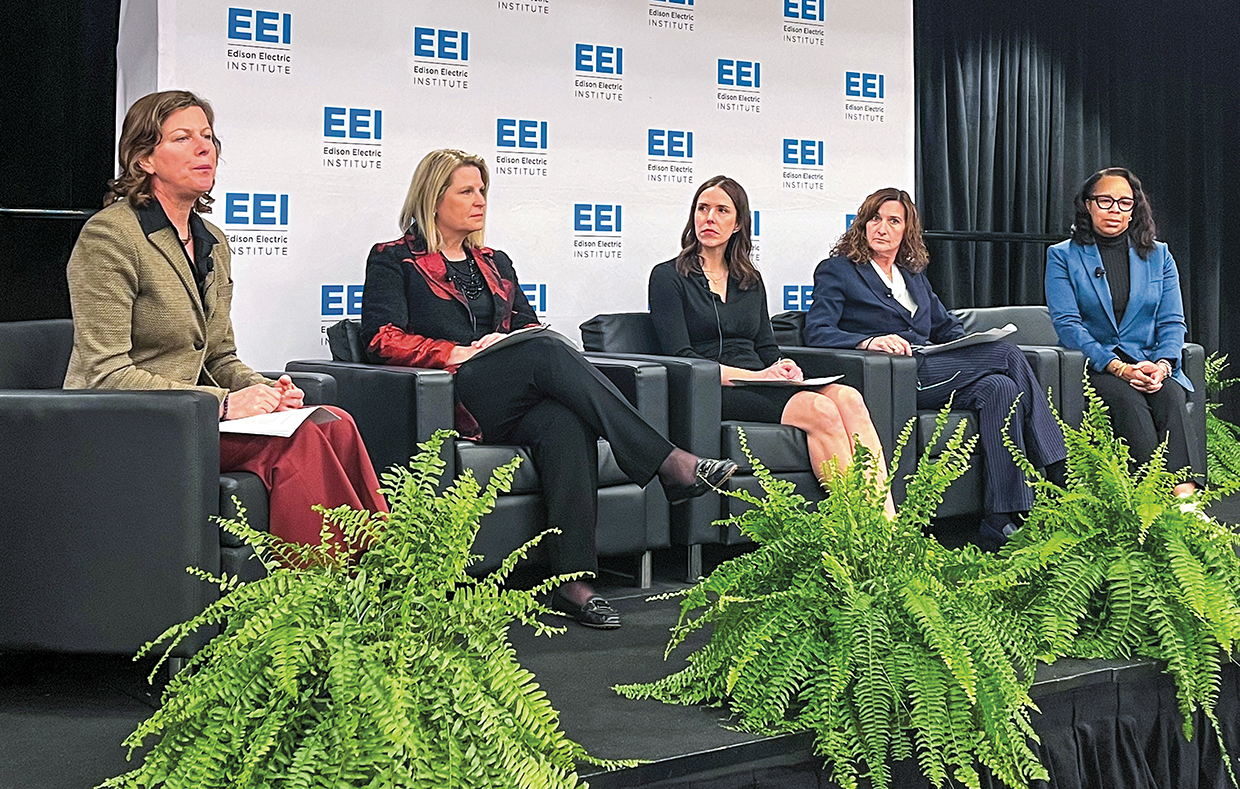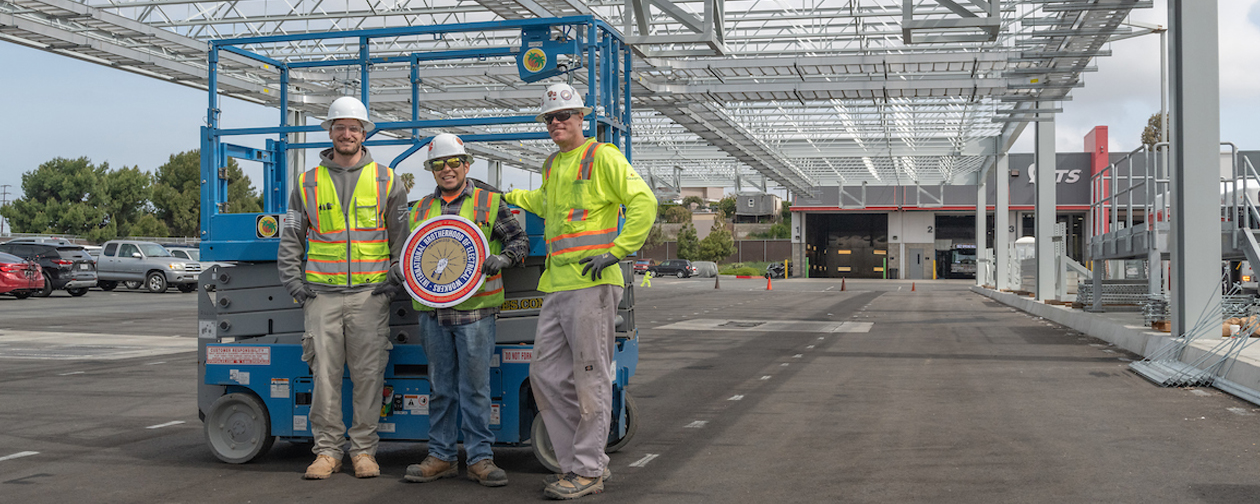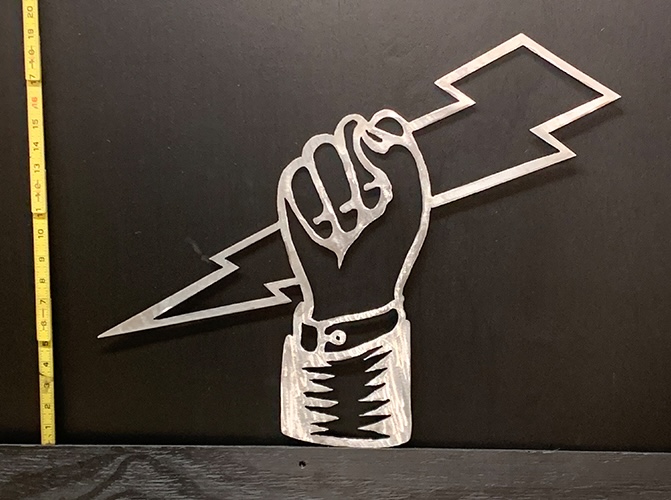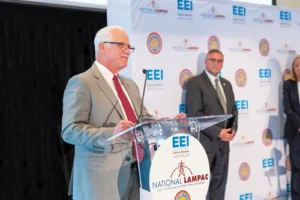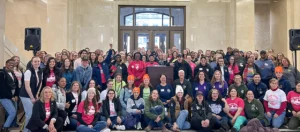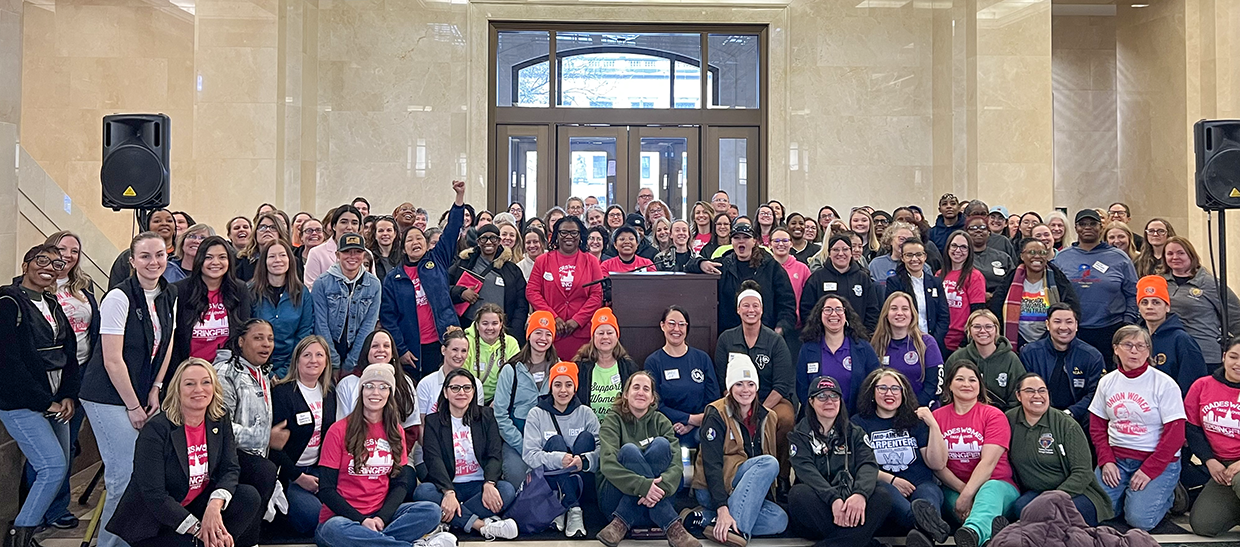
IBEW sisters from across Illinois were out in full force for a tradeswomen lobby day at the Capitol in Springfield, calling on their elected leaders to support policies that will bring more women into the trades.
“The day was an extraordinary experience for everyone,” said Chicago Local 134 Business Representative Bea Thompson, who spoke at the event. “We learned how to actually be a part of the lobbying process by speaking face-to-face with our lawmakers.”
Approximately 300 women from across the trades donned pink shirts for “Tradeswomen Take Over Springfield,” a day of action hosted by the Illinois AFL-CIO. The event, held March 5, included lobbying legislators as well as a rally.
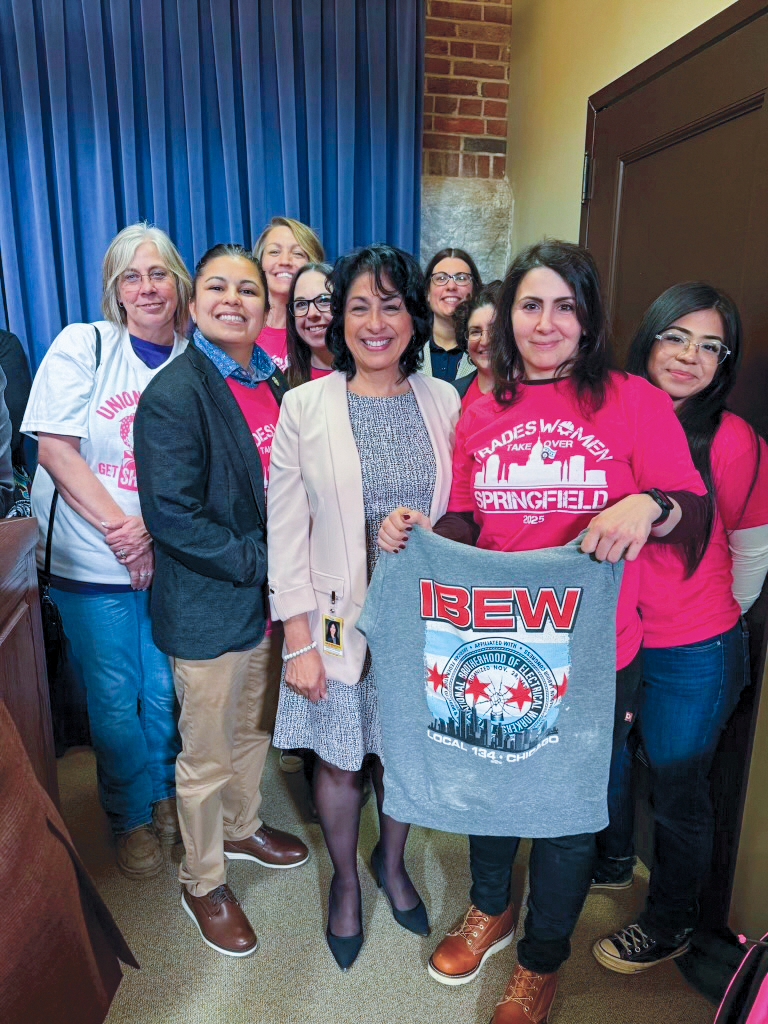
“Events like this give tradeswomen the forum to collaborate with each other and talk about issues that matter to them. It also demonstrates to women who are thinking about getting involved in the trades that they are not alone,” said Lisle Local 701 Business Manager Anthony Giunti. “We hope it also shows them that the IBEW has the resources and support to make women successful.”
The key issues of the day were accessible child care, personal protective equipment for all body types and combating gender-based violence. There was also a call to support House Resolution 161, which would reaffirm the state’s commitment to expanding workforce opportunities for all people who wish to pursue a career in the trades.
“We had a very positive response from our local elected officials. They were pleased to sit down with our sisters to listen and learn about their concerns,” said Bloomington Local 197 Business Manager Mike Raikes. “Our sisters brought up valid points about the trials of child care, especially during evening hours when they have apprenticeship classes.”
Approximately 5% of Illinois tradespeople are women, slightly above the national average of 4%.
For Champaign-Urbana Local 601 office manager Deanna Lavoie, the issues that would help women in construction are universal to all workers, particularly those with families. Lavoie completed her electrical apprenticeship in 2011 but started working in the office about four years later after giving birth.
“My husband is also in the construction trades, and after having a baby, I’m not sure how we would have made it work had I not been offered a job in the office,” Lavoie said. “The not knowing where you are going to work and what time you need to leave to get there, or how long the drive home will be, makes it hard to plan for children.”
Lavoie also talked about the issue of being able to breastfeed.
“Thanks to this job, I was able to nurse for 13 months,” she said. “By law, employers have to allow a woman to pump at work, but how many construction workers do you think that actually works for?”
For many in attendance, it was their first time engaging in such an effort.

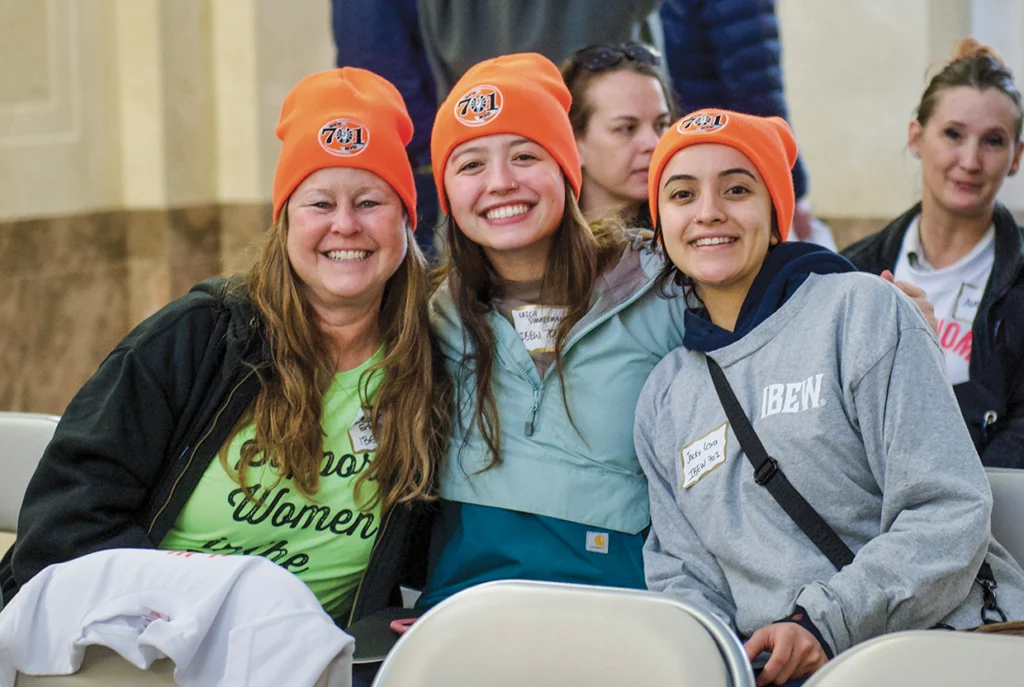
IBEW sisters were among some 300 Illinois tradeswomen who visited the Capitol to talk with legislators about issues that included child care and PPE adapted for different body types to better protect women on the job.
“The day proved to be a learning experience for everyone as we each learned how important our voices are in the process of influencing change,” said Thompson, who served as a lobby captain and led other tradeswomen in their lobbying efforts.
Thompson said it was encouraging to have so many legislators respond positively to their issues.
“The legislators were very receptive, and more than a few were eager to support H.R. 161,” she said. “It really gave a satisfying feeling to know that women in construction have so many advocates in Springfield.”
Raikes pointed out the need for more tradespeople, and in particular electricians, and how the Legislature spends hundreds of millions of dollars on construction projects around the state. These projects could have requirements to promote safety and opportunities for all construction workers, especially women and minorities.
“Women have already played a vital role in our industry, and there is plenty of room for more women in the trades,” Raikes said. “We should all be pulling on the same rope to create more cohesion among our ranks.”
Like Lavoie, Thompson sees breaking down barriers for women entering the trades as a way to strengthen the entire industry by opening it up to new ideas and innovation.
“Women have been an integral part of building this nation for centuries,” she said. “Given the opportunities through proper training, our capabilities are limitless.”
